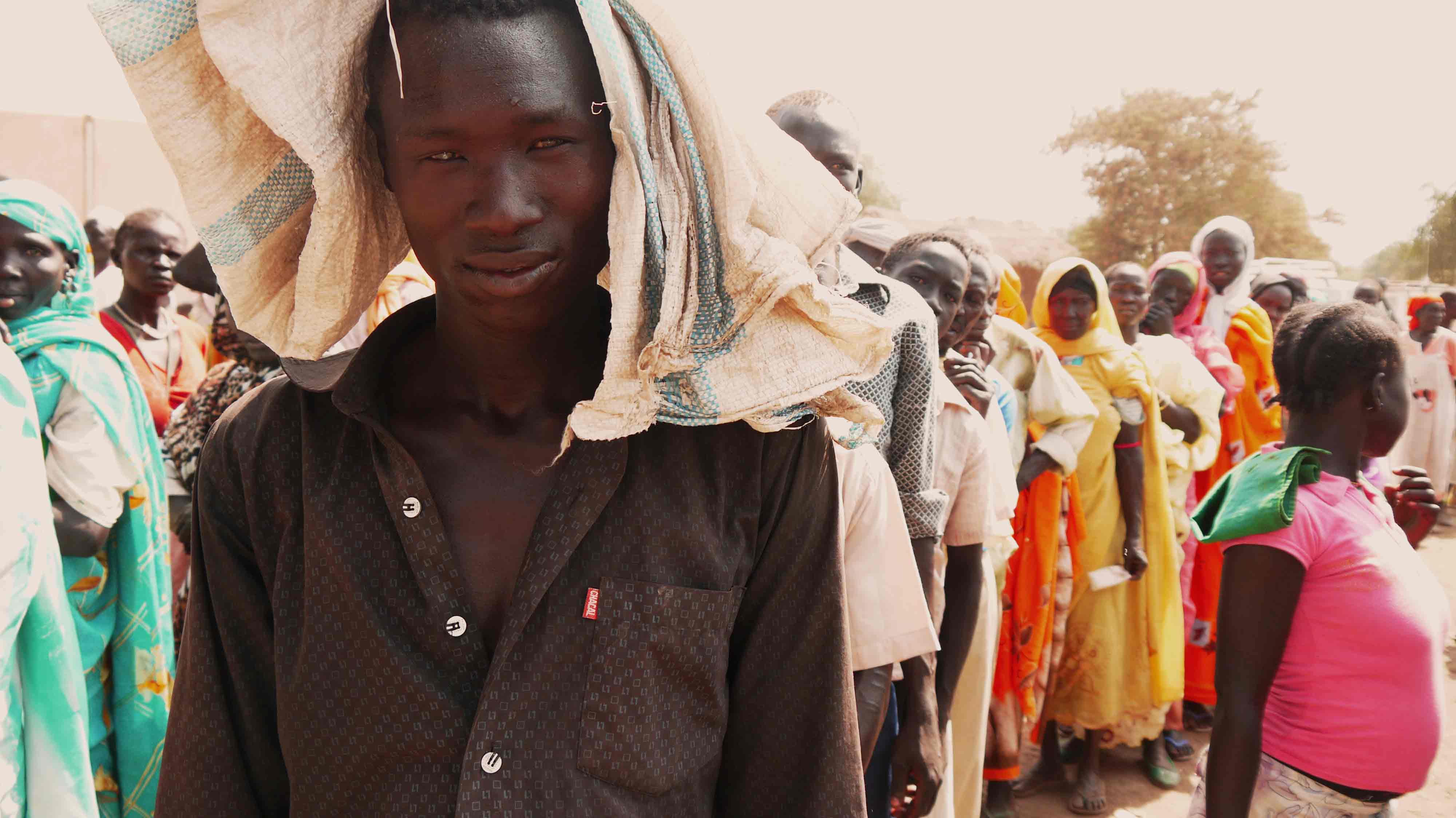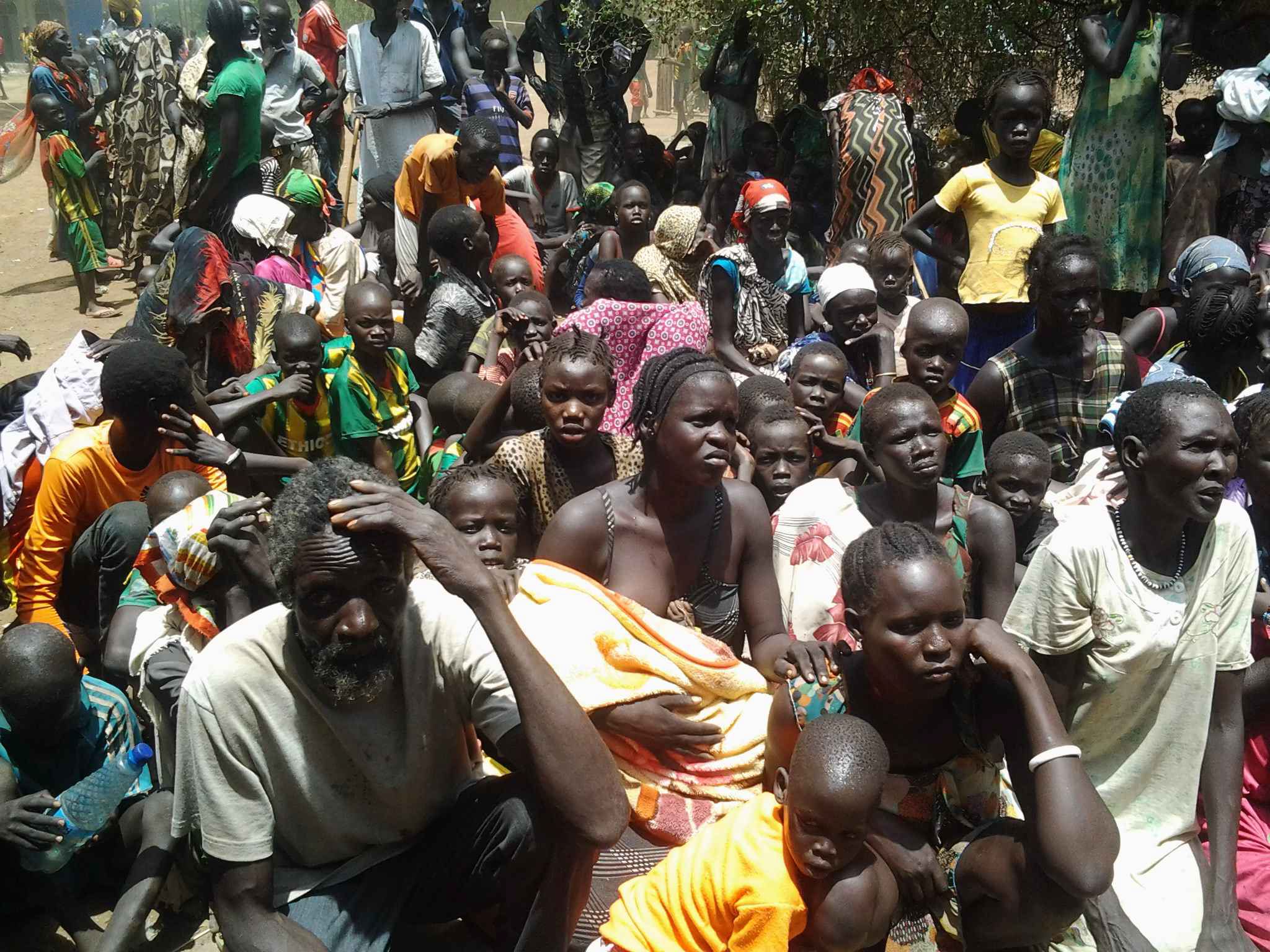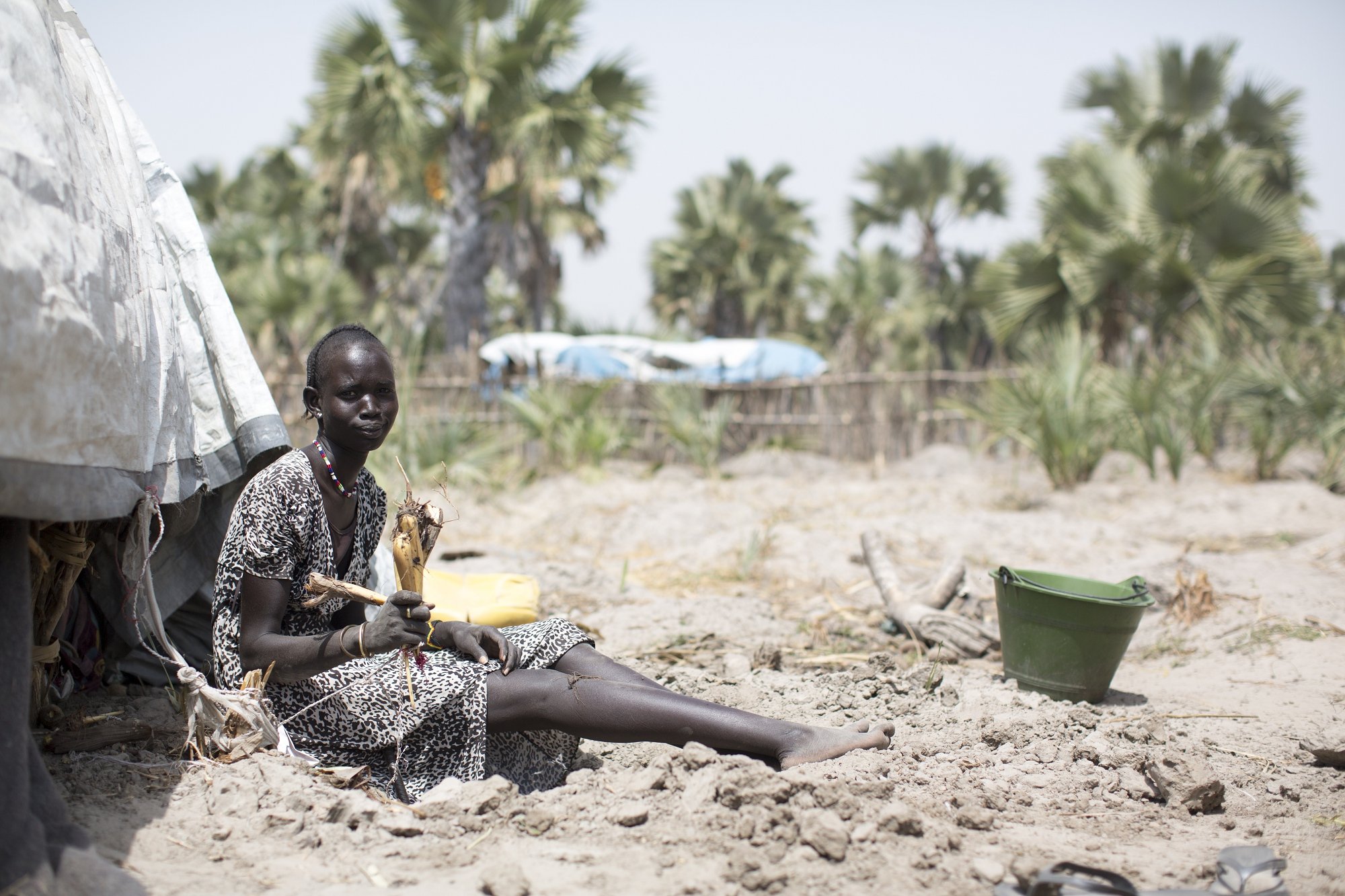Hard trek from Sudan leads to safety and deprivation
Hard trek from Sudan leads to safety and deprivation

DORO CAMP, UPPER NILE STATE, South Sudan, December 23 (UNHCR) - The weary and desperate line up near the dusty road, waiting for the chance to collect what they need to survive. For weeks they have journeyed to reach this place, living in constant fear of violence. They bore children upon their backs and carried their meagre belongings on their heads or in their arms.
Rebecca Barnaba, 23, arrives at 7:30 a.m. and lines up in hopes of receiving a blanket. Like more than two thousand others, she chats with those around her as the queue for pots and pans, soap, mosquito nets and other items inches slowly forward. Despite the heat and the crowd, the mood is almost festive. The women laugh and talk among themselves. When Barnaba reaches the front of the line, evening approaches. There are no more pots, no more mosquito nets and no more soap. "There are blankets and I need blankets," she says. "It is cold at night and I don't want my children to get sick."
Refugees are streaming from Sudan's Blue Nile State into South Sudan via three separate border crossings. The population of Doro Camp is more than 25,000, and more than half of the new arrivals are children. UNHCR has registered all new arrivals and provided some 19,000 refugees with basic survival items and food. Distributing relief items is difficult even in the best of conditions, but the logistical challenges are greater still with hundreds of refugees crossing into the Upper Nile State daily. "They've left everything behind, they're scared," says Ahmed Moshen 37 a UNHCR protection officer. "They had to walk for weeks to get here."
An airlift to bring in more supplies got under way yesterday. Over the coming weeks, approximately 285 tons of relief supplies and thousands of tents - enough for 60,000 people - will be flown in from Kenya and the United Arab Emirates and then trucked to refugee encampments in Upper Nile and Unity states. UNHCR is laying the groundwork for a second camp, called Jamman, capable of receiving 15,000 refugees currently stranded in the village of El Foj near the Sudan border. The agency and its partners are racing to set up tents and address health, food and educational needs before the spring. Then, rains will arrive from Ethiopia and access to the camp will be hindered due to flooding of the roads.
The area, a frequent battlefield during Sudan's civil war during the 1980s and 1990s, is mined - creating yet another challenge for humanitarian workers and refugees alike. Teams from the United Nations Mine Action Coordination Centre and Norwegian People's Aid are continuing to clear the area of mines.
Rebecca Barnaba's journey to Doro camp from her hometown of Chale in Sudan's Blue Nile State took 20 days. Villages there are the target of frequent air raids. When Barnaba heard the bombing, she fled as fast as she could, bringing only a bit of food and her four children. She strapped the youngest, 2-year-old Robert, to her back. The others, including 3-year-old Henson and 4-year-old Amenta, walked at her side. She moved at the pace of her children, keeping a watchful eye for the bombers in the sky.
Here in Barnaba, she can at least sleep without fear of violence. But the family sleeps under a tree and eats meals from a single pot. "I lay down and see the stars at night but I don't think of anything," Barnaba says. "Here we're safe but we have nothing. Home we have everything but we are not safe."
Others are less fortunate. Omar Said Bomfa, 56, lays on a hospital bed, his legs swollen and ripped open along the calf muscles. When he heard the bombs falling near his home, he hoisted his four-year-old child on one shoulder and a 30-kilogram bag of sorghum on the other. He walked for two days, too fearful to rest. On the third day, he realized that his body was swollen and his arms had grown numb. Upon crossing the border, Bomfa was taken to a local hospital by representatives of Médecins Sans Frontières, one of UNHCR's operational partners. "He has thrombosis and oedema in both legs," says Dr. Evan Atar, a doctor at Bunj Hospital. "When he arrived here he was unable to speak."
Bunj hospital, some three kilometres from Doro camp, is a basic facility. Some of its equipment arrived from Blue Nile State after the local doctors were forced to flee. Samaritan's Purse, an NGO, is now providing support to enhance equipment and services. Atar says his greatest fear is the spread of waterborne diseases such as cholera. During their journey across the border, refugees mainly drink from filthy streams that are shared with various livestock.
Health is one of the many priorities for UNHCR and its partners. Médecins Sans Frontières has set up a clinic on the camp's outskirts and is now investigating nutritional needs. Meanwhile, Oxfam is racing to drill additional boreholes to address the growing population's need for sources of clean water.
"We're making the best of the challenge we face," said Koffi Adossi, head of the UNHCR sub-office in Upper Nile State. "But there is still a lot of hard work ahead."
By Greg Beals in Doro Refugee Camp, South Sudan. Beals is a writer and journalist now on assignment in East Africa for UNHCR.








